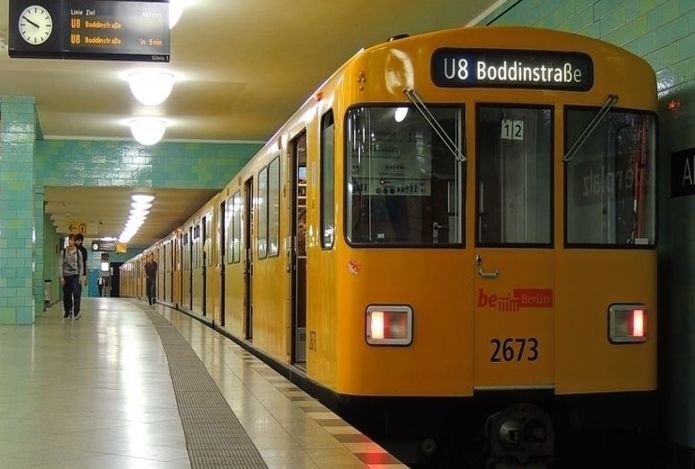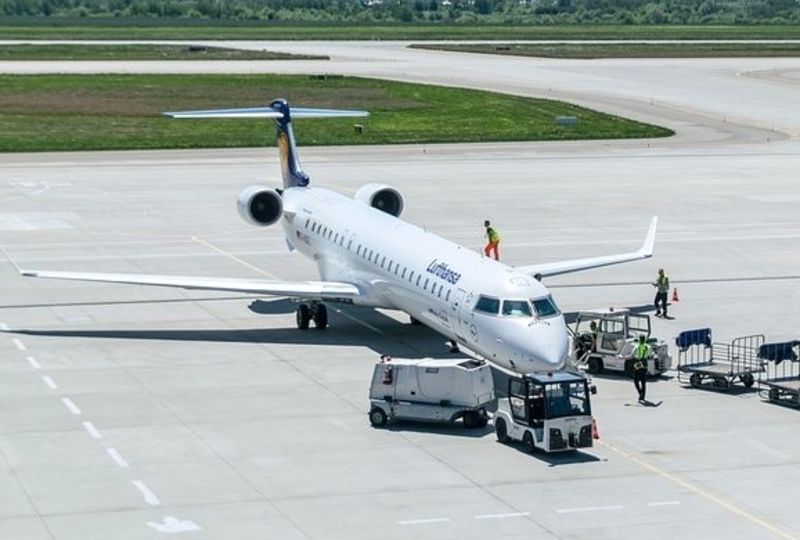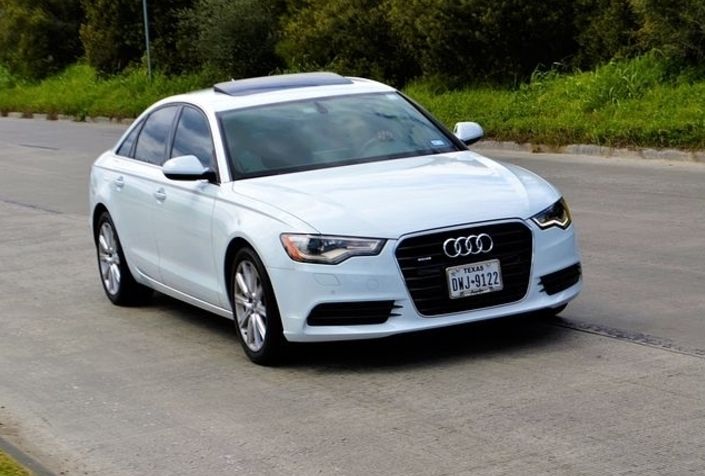How to Travel in Germany as A German Language Learner

When you go to Germany, you have a lot of options about how you travel around the country. Apart from flying into the country, you aren't likely to need a plane (though you can fly to your destination if you need to get somewhere fast), but all other types of transportation are readily available. From their phenomenal trains and bus systems to the legendary highways to the more peaceful bike paths, you can take whatever mode of transportation you want to make the most of your time in the country. You can even get to some really neat places by boat or get some exercise by traveling by bike.
The Germans are famous for their efficiency, and that is particularly true when it comes to modes of transportation. To access their phenomenal transportation though, you need to know what to expect and the important phrases to help you get to your next destination.
Don't forget to have your basic phrases ready because you will be using those often to engage in those early conversations. You should probably brush up on discussing directions to make sure you head in the right direction.

Basic German Words and Phrases for Traveling in Germany
Before you start trying to get around Germany, you need to learn a few phrases. Don't worry, these are pretty easy because they are basic phrases and don't require you to remember a lot of different conjugations and long words.
You will probably find that the articles are the hardest part of memorizing these phrases. If you need some help, we've covered details about articles in a previous blog.
First, let's look at the words you will likely use.
| airplane | das Flugzeug |
| automobile/car | das Auto |
| bicycle | das Fahrrad |
| boat | das Boot |
| bus | der Bus |
| express train | S-Bahn |
| on foot | zu Fuß |
| horse | das Pferd |
| line/busline | die Linie/die Buslinie |
| motorcycle | das Motorrad |
| round trip | die Rundfahrt |
| sailing boat | das Segelboot |
| ship | das Schiff |
| subway | die U-Bahn |
| taxi | das Taxi |
| ticket | die Fahrkarte |
| day ticket | die Tagesfahrkarte |
| single ticket | die Einzelfahrkarte |
| multi-ticket | die Mehrere Fahrkarte |
| week pass | die Wochenkarte |
| month ticket | die Monatskarte |
| trailer | der Anhänger |
| train | der Zug |
| tram | die Straßenbahn |
| truck | der Laster |
Now, let's look at some of the phrases you will probably use while traveling.
| How much does a day ticket cost? | Wieviel kostet eine Tagesfahrkarte? |
| I need to go to the hotel. | Ich muss zum Hotel. |
| When do we arrive? | Wann kommen wir an? |
| When does the next train to… leave? | Wann fährt der nächste Zug nach…? |
| Which bus goes to the city center? | Welcher Bus fährt ins Zentrum? |
| Dear passengers… | Sehr geehrte Fahrgäste… |
| Exit left/right | Ausstieg links/rechts |
This provides you with the basic vocabulary you need to start getting around in German. Even if you can't put together a full sentence because you feel nervous, as long as you can remember the right term or phrase, you'll be able to get your point across.

Top 5 Modes of Transportation in Germany
Germany is famous for its amazing public transportation, and that is for a very good reason. From well-maintained roads to reliable trains and buses, you have a lot of options for how you can travel around the country. For those who love exercise and want to really see the sights, there are even a lot of places where you can safely bike around Germany.
1. Coming and Going by Air
A lot of people who travel to Germany are going to arrive by plane, but in most cases, you aren't going to need to buy a plane ticket to travel within the country. If you are an American, Germany is about the size of the state of Georgia, making it possible to travel from one end of the country to the other in a day (though that is admittedly a lot of time in the car).
The majority of German cities do have their own airports, and the country does have a fairly large number of domestic carriers if you need to get from one end of the country to the other faster than you can manage by train. For example, if you are traveling from Munich to Hamburg or Berlin, you will get there a little faster by plane. If the cities are any closer than that, you can save money and time by just taking a train.
The most well-known German airline is Lufthansa, which books both domestic and international flights. Odds are, if you are flying into or departing from Germany, you will be flying with this airline.
2. Catching the Bus
Buses are probably the most common and obvious way to get around much of Germany, especially in the cities and towns. You will need to pay attention to their hours of operation as Germany does not run buses as frequently in the evenings and on weekends. There are a few cities that have night buses, so make sure to check the schedules if you are planning to stay out late.
In more urban areas, you may also have the option to take a tram instead of a bus. You can also take the S-Bahn, comparable to the US's subway and UK’s tubes, in the biggest cities.
3. Catching a Train
Germany has a renowned railway for a reason; they don't tend to have the kinds of delays typical in most other nations. When getting around the country, it is best to either take a train or a car because of how robustly and masterfully the nation manages their railroads and highways.
Trains are almost always going to be preferrable to driving because it gives you a chance to see the country without all of the stress of driving or managing rideshares.
Most of the nation's rail systems are run by Deutsche Bahn. They have a website that is easy to navigate and includes all of the information you need about the trains in English. For the more adventurous reader, you can check out the website in German. We definitely recommend booking in English until you are familiar with the site and know what information they require.

4. Getting a Ride Share
While hitchhiking is still done in Germany, particularly around rural areas, ride sharing is the far safer method of getting around in a car if you don't want to drive. Unless you will be spending a few months in the country, it makes more sense to use one of the ride sharing apps.
Ride shares in Germany are a bit different, with passengers usually paying primarily for the cost of the gas to get to their destination. You can check out BlaBlaCar and Mitfahren to learn about ride sharing in the country.

5. Riding a Bike
If you enjoy biking, Germany is an incredibly biker friendly country. Bikes are allowed everywhere except on autobahns, known in other countries as motorways. Like most countries, cyclists are required to follow the same laws as drivers.
When biking around Germany, you will find that most places expect drivers to share the road, although larger cities have designated biking lanes. You can take your bike on a train, though you will need a special ticket for the bike. If you take a bus, there is a special rack so that you don't have to take the bike on the bus.
Keywords and Phrases to Use Transporation in Germany
Getting around Germany is incredibly easy becuase they've got such a wide range of reliable transportation. Depending on where you stay and where you want to go, you may even end up using all of them. As a German language learner, a little bit of preparation for German basic words and phrases will help you easily travel to whatever your destination is. As a return, you can practice your German with native speakers whom you run into while you are traveling.
